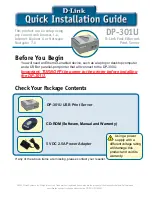
Functional Architecture
Intel® Server Board S3420GP TPS
Revision
2.4
Intel order number E65697-010
26
3.4.2
Serial ATA Support
The Intel
®
3420 Chipset
has two integrated SATA host controllers that support independent
DMA operation on up to six ports and supports data transfer rates of up to 3.0 GB/s (300 MB/s).
The SATA controller contains two modes of operation – a legacy mode using I/O space and an
AHCI mode using memory space.
Software that uses legacy mode does not have AHCI capabilities. The Intel
®
3420 Chipset
supports the Serial ATA Specification, Revision 1.0a. The Ibex Peak also supports several
optional sections of the Serial ATA II: Extensions to Serial ATA 1.0 Specification, Revision 1.0
(AHCI support is required for some elements).
3.4.2.1 Intel
®
Matrix Storage Technology
The Intel
®
3420 Chipset provides support for Intel
®
Matrix Storage Technology, providing both
AHCI (see above for details on AHCI) and integrated RAID functionality. The industry leading
RAID capability provides high-performance RAID 0, 1, 5, and 10 functionality on up to six SATA
ports of PCH. Matrix RAID support is provided to allow multiple RAID levels to be combined on
a single set of hard drives, such as RAID 0 and RAID 1 on two disks. Other RAID features
include hot spare support, SMART alerting, and RAID 0 autos replace. Software components
include an Option ROM for pre-boot configuration and boot functionality, a Microsoft Windows*
compatible driver, and a user interface to configure and manage the RAID capability of the
Intel
®
3420 Chipset.
3.4.3
USB 2.0 Support
On the Intel
®
3420 Chipset, the USB controller functionality is provided by the dual EHCI
controllers with an interface for up to ten USB 2.0 ports. All ports are high-speed, full-speed, and
low-speed capable.
Four external connectors are located on the back edge of the server board.
Two internal 2x5 header (J1E2 and J1D1) are provided, each supporting two optional
USB 2.0 ports.
One port on internal vertical connector to support NIC.
One port on 1x4pin (J1J2) on-board header on Intel
®
Server Board S3420GPLX and
S3420GPLC) to support floppy.
3.4.3.1 Native USB Support
During the power-on self test (POST), the BIOS initializes and configures the USB subsystem.
The BIOS is capable of initializing and using the following types of USB devices.
USB Specification-compliant keyboards
USB Specification-compliant mouse
USB Specification-compliant storage devices that utilize bulk-only transport mechanism
USB devices are scanned to determine if they are required for booting.
The BIOS supports USB 2.0 mode of operation, and as such supports USB 1.1 and USB 2.0
compliant devices and host controllers.
















































